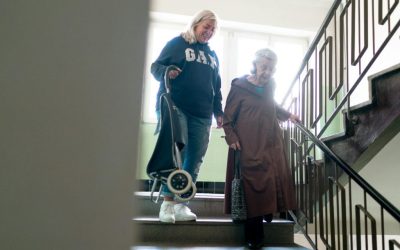There may be times when you require your nanny or a senior caregiver for overnight care or long shifts or you’ve hired a live-in employee. You’ll need to comply with sleeping time laws, which vary by the type of shift your caregiver is working.
Blog Category:
Senior Care
Why It Might Be Time to Hire a Senior Caregiver
Is it time to hire a senior caregiver? Discover the benefits of in-home care, from relieving family stress and ensuring safety to promoting independence and quality of life. Learn how hiring a caregiver can help your loved one age gracefully and happily at home.
Hiring Elder Care? You May Now Be Their Boss
Employing a senior caregiver for an elderly loved one could mean you’re now in charge. There is more work involved for you but you now have more control of their hiring and employment.
Paying Nanny Taxes for Senior Care
Don’t be fooled! You may need to pay nanny taxes when hiring a senior caregiver. If you’re considered their employer, you’ll need to comply with applicable tax, wage, and labor laws.
New York Court of Appeals Upholds 13-Hour Rule for Home Health Aides
New York State’s “13-Hour Rule” means household employees do not need to be paid for sleep time or meal breaks provided they are uninterrupted.
Follow these Steps When Hiring In-Home Senior Care
When you hire private, in-home senior care, you may become a household employer. While this will give you more control over the employment situation, a number of tax, wage, and legal nuances come along with being an employer.
How to a Hire a Senior Caregiver
Looking to hire a senior caregiver for your elderly loved one? Take these steps — from developing a job description to making an offer — to ensure you’re hiring the right candidate.
How to Find a Senior Caregiver through an Agency or on Your Own
Finding a senior caregiver isn’t easy. Preparation, budgeting and knowing the right questions to ask are essential to getting it right.
Retirement Survey: Many Older Americans Plan to “Age in Place”
In a recent retirement survey by USA Today, 43 percent of 45- to 65-year-olds anticipate remaining in their current residence throughout their retirement.
Sign up for our Newsletter
Household Employer Digest











 Get your free:
Get your free: